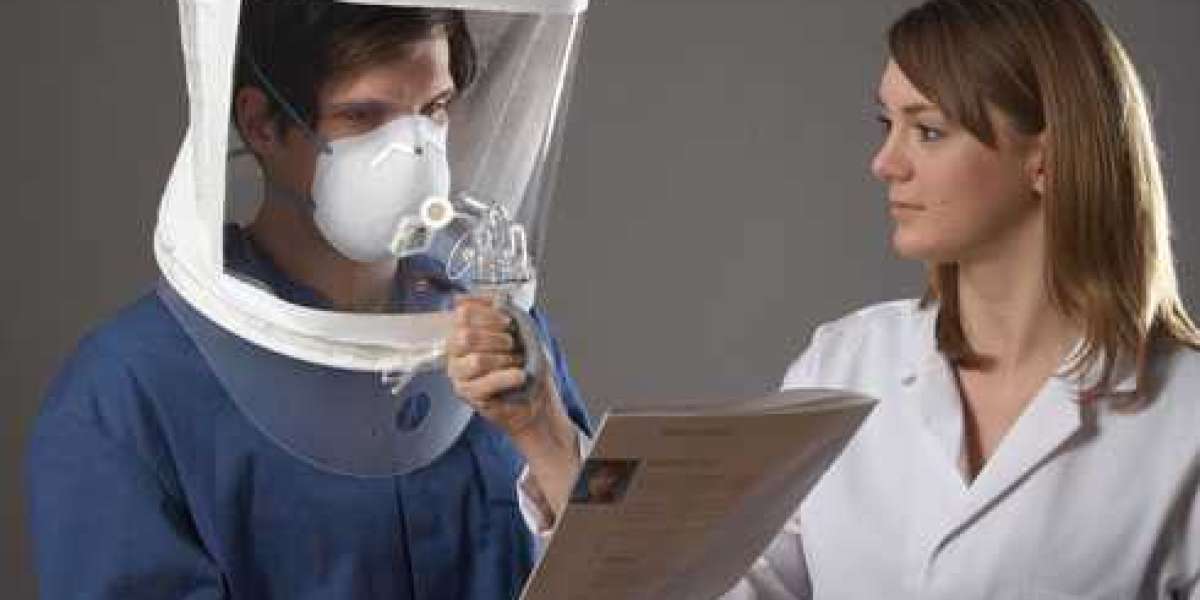The n95 mask fitting test is a crucial step in verifying the effectiveness of an N95 mask. This test ensures that the mask forms a proper seal around the user’s face, providing optimal protection against airborne particles. The importance of a correctly fitted N95 mask cannot be overstated, as improper use may lead to leaks that reduce the mask's ability to filter out harmful contaminants. Conducting an n95 mask fitting test is an essential part of ensuring safety, especially in healthcare settings or other environments where airborne hazards are present.
Why the N95 Mask Fitting Test is Important
The n95 mask fitting test is designed to evaluate whether an individual can achieve a secure fit with their mask. Without this test, even a high-quality mask might fail to provide the intended level of protection. N95 masks are designed to filter out at least 95% of airborne particles, but this only works when the mask fits snugly against the skin without gaps. This test verifies the seal between the mask and the user’s face, ensuring no unfiltered air enters. It is especially critical for those in high-risk environments to conduct regular tests.
The Process of an N95 Mask Fitting Test
The n95 mask fitting test typically involves both a qualitative and quantitative evaluation. During the qualitative test, a harmless substance like saccharin or bitrex is sprayed around the mask, and the wearer reports if they can detect the taste or smell. If the wearer detects the substance, the mask may not be sealing correctly, and adjustments are needed. The quantitative test, on the other hand, uses specialized equipment to measure the actual amount of particles leaking into the mask. Both methods are valid and ensure that the user is adequately protected when wearing the mask.
Common Issues in N95 Mask Fitting Tests
One of the most common challenges encountered during the n95 mask fitting test is facial hair, which can interfere with the mask’s ability to create a tight seal. Other factors include the size and shape of an individual’s face, which may affect the way the mask fits. Some users may require different sizes or models of N95 masks to achieve the perfect fit. It’s also essential to follow the manufacturer’s instructions for wearing the mask correctly, as improper donning can result in a failed test. Repeated tests are recommended to ensure that users maintain a proper fit over time, especially if there are changes in weight or facial structure.
Importance of Regular N95 Mask Fitting Tests
Even if someone passes an initial n95 mask fitting test, it is important to regularly conduct the test over time. Changes in facial structure, weight gain or loss, or even prolonged use of the mask can affect the seal. Additionally, N95 masks are often reused in certain settings, and regular testing ensures that the mask continues to provide the necessary level of protection. Healthcare workers and those in other high-risk industries should schedule these tests regularly to avoid any reduction in protection.
The n95 mask fitting test is a vital procedure for ensuring that N95 masks perform as intended. Without a proper fit, the mask’s filtration capability is significantly reduced, putting the wearer at risk. Regular testing, combined with proper mask usage, ensures maximum protection in environments where airborne hazards are present. Whether you’re a healthcare worker, first responder, or someone concerned with personal safety, the n95 mask fitting test plays a key role in keeping you safe from harmful particles.







